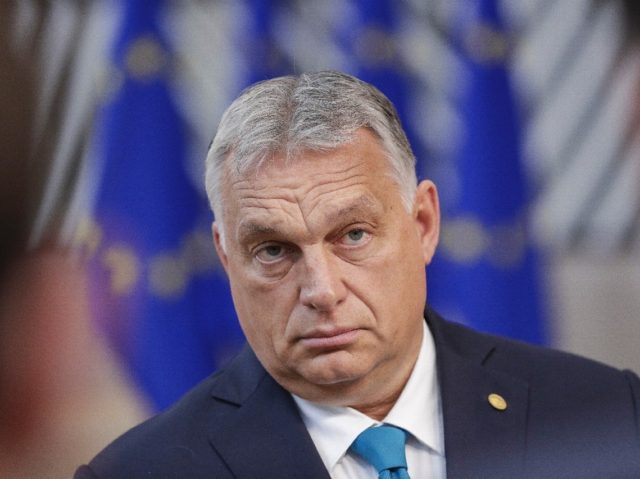Hungarian leader Viktor Orban and other eastern Europeans on Thursday poured scorn on the EU’s ambition to achieve net zero carbon emissions as the rising cost of energy frayed tempers at a summit in Brussels.
The right-wing leader spoke as he arrived for a meeting of EU leaders in which former communist bloc countries were also under pressure over Poland’s recent defiance of EU law.
“The Hungarian position is very clear…. This plan increases energy prices,” Orban said of the EU’s intention to achieve carbon neutrality by 2050.
These prices are already “barely bearable, and if it continues to rise, it will kill the European middle class,” Orban added.
Orban said the plan was “toxic” for European democracy and that it must be cancelled and “rethought completely”.
Diplomats said Czech Prime Minister Andrej Babis, backed by Orban, resisted signing off on the summit conclusions on energy, wanting to get new language on the EU’s landmark carbon emissions system, which he said was being manipulated.
The EU’s Emissions Trading System (ETS), the world’s biggest carbon market, is the centrepiece of the bloc’s plans to green their economy.
ETS is based on the idea that industry pays for the right to pollute, and certain member states are countering the EU’s plan for its expansion to road transport and residential heating.
Moreover, the ETS prices have more than doubled over the past year and the EU’s executive has asked regulators to take a closer look at the surge.
The feuding over energy prices rivalled an even bigger fight over Warsaw’s defiance on the supremacy of EU law over national laws that some fear could lead to Poland’s exit of the EU.
Other countries also wanted points made on energy, with Spain calling for an ambitious reform of the EU’s energy market and Germany urging restraint.
The energy price surge needs to be “clearly distinguished” from the EU’s climate plan, German Chancellor Angela Merkel said.
“I think that we should react prudently.”
Diplomats also said that a majority of member states backed both nuclear power and natural gas as potential energy sources in the transition to a decarbonised Europe.
The EU’s two biggest powers are split on the issue. France is one of the world’s biggest backers of nuclear energy, but Germany prefers natural gas and is deeply wary of atomic energy.
An official decision on the issue is expected by the end of the year and will have a profound effect on investment decisions for the coming years.

COMMENTS
Please let us know if you're having issues with commenting.